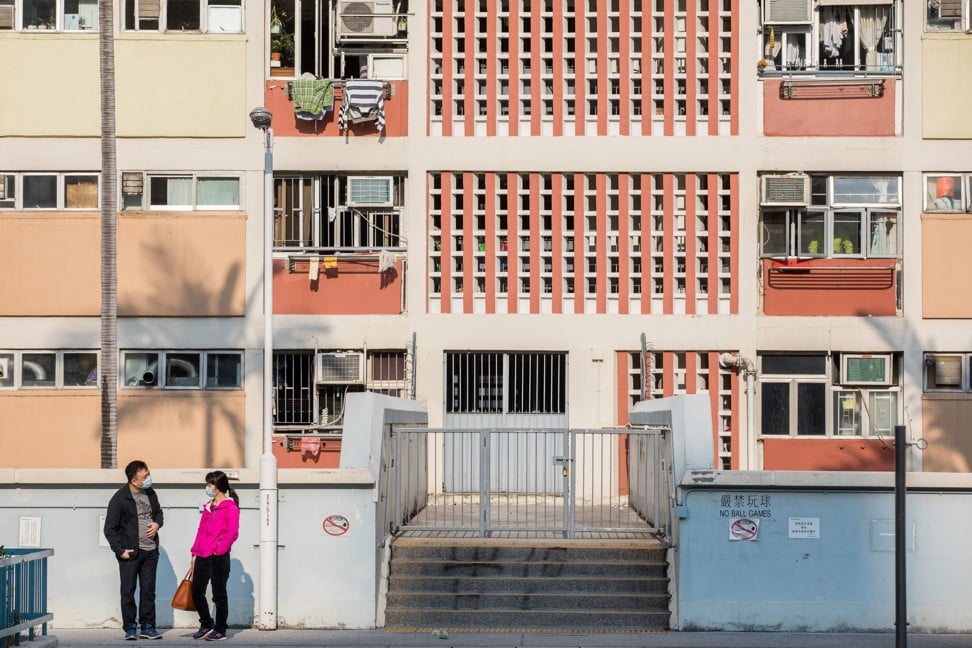Societies in crisis: coronavirus epidemic underlines the need to refresh the social contract between government and the people
- A survey of workers and consumers in 22 advanced economies sheds light on the lack of retirement protection and job security, even as income inequality rises to extreme levels. The social contract promised in an open society, alongside a free market, is broken

The neoliberal order – of which many in Asia, including Hong Kong, are believers – is founded on free markets and an important social contract: that the state and market will take care of citizens. But the coronavirus epidemic has raised doubts about whether such a social contract works as promised.
Eighteenth-century French philosopher Jean-Jacques Rousseau is most associated with the idea of a social contract, in which the individual agrees to submit to the authority of the state in exchange for the state’s protection of his or her natural and legal rights.
With millions of Chinese and other Asians now confining themselves to home because of the outbreak, this is the time to step away from the rat race and think about the meaning of life.
Can a free market that calls for minimal government intervention, deal with an epidemic? And when there is huge disagreement over what to do in a panic, can a fully democratic government deal with a crisis that is unprecedented in recent history?
The debate in the West on whether democracy is failing stems from increasing disillusionment that the neoliberal order has failed to deliver what it promised.
In a just-published report, “The Social Contract in the 21st Century”, McKinsey Global Institute shares its findings from an excellent survey of the plight of workers, consumers and savers in 22 advanced economies, covering 57 per cent of world gross domestic product.
The neoliberal order preached free markets, individual freedom, human rights, rule of law and electoral democracy – essentially government of the people, by the people, for the people. But what McKinsey found was that since the 1970s, while workers in the 22 OECD countries surveyed had access to more jobs, their rights have been eroded.
Although average income had risen, the median (most people in the middle) were actually worse off. Because free market competition was prized, union power was weakened and more people were put on short-term contracts. So, job insecurity was significantly higher.
At the same time, consumer protection worsened as the concept of “buyer beware” shifted responsibilities for decision-making to consumers and investors who did not understand the risks they were taking.
Workers also had insufficient pensions and health care on retirement. Pension rights shifted from defined benefits to defined contributions, and risk-bearing for the returns on pensions shifted from the employer to the employee.
The result was: half of the adult population surveyed did not have enough savings for retirement, with a quarter having no savings at all.
Indeed, in the United States – probably the best off among the members of the Organisation for Economic Cooperation and Development in terms of economic performance – 23 per cent of households had zero or negative net worth in 2017, compared with 16 per cent in 2001.
So when Oxfam announced that the world’s richest 1 per cent have more than twice as much wealth as 6.9 billion people, no wonder people feel that the system is rigged.
Inequality has become unjust and extreme. GDP has risen, but people are no happier. What can be done about this inequality?
McKinsey suggests two priorities for the next decades. First, sustain and expand the gains through technology, productivity and higher job and opportunity creation. Second, find solutions for the most adversely affected groups, such as low-skill, low-wage workers, women and minorities, underdeveloped regions and young people.
But this implies that communities have the capacity to agree on taxing the rich and investing in the masses, and provide more protection for all. The realists among us have no confidence that they do.
The Industrial Revolution is premised on the idea that advances in science and technology will bring freedoms and equal opportunities, and knowledge and democracy for the masses.
But as free-market Hong Kong has shown, if the collective system does not have the political will to tackle growing social inequalities and the bureaucracy does not know how to adapt to the changing context, then inequality grows in spite of good intentions.

There are three options when facing a crisis: fight, flight or unite. Fighting will go nowhere when facing a common threat. It does not matter whether you are white, black, brown or yellow, rich or poor, your chances of survival are as good as the next person’s. How could the coronavirus outbreak be contained while a sizeable number of medical workers were on strike?
Flight also seems pointless when there is such panic and fear, aggravating ignorance and prejudice everywhere. A Chinese student in Sheffield, England, was harassed and abused for wearing a face mask, for example.
The only option is to unite. We must refresh the social contract. Even with the most efficient of governments, the speed and scale of epidemics, this and others to come, are outside their realm of knowledge and experience. This cannot be tackled by the state alone. We need a cooperative effort between all, for all, because modern crises are interconnected.
To face any crisis, we need to work with everyone, even people we don’t like, for the common good.
Andrew Sheng writes on global issues from an Asian perspective. The views expressed are entirely those of the author